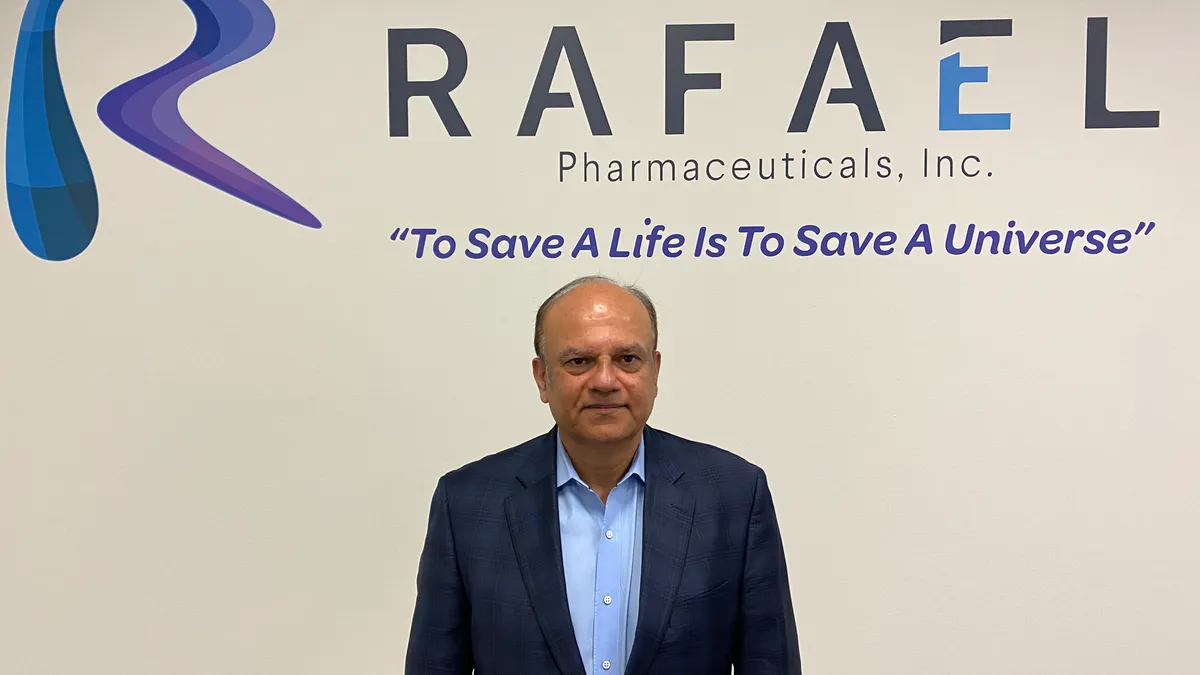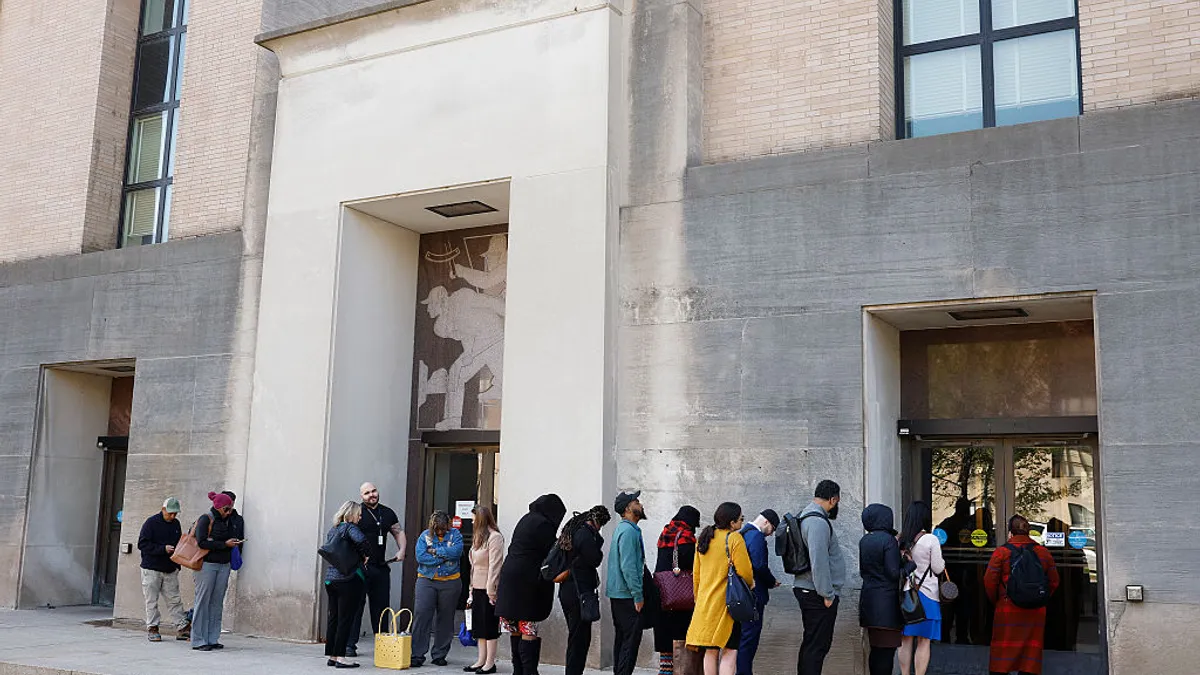The pharma industry is undergoing a period of soul searching when it comes to health equity and how to make drugs more accessible to a wider swath of patients. Among the patients in the mix of this conversation are those living with a rare disease.
Like other populations in need of greater health equity, rare disease patients face higher barriers to care, are vulnerable due to their degree of sickness, and because of the complexity of developing treatments, face an ongoing, unmet need. These barriers can get even higher for those with a rare cancer.
“Although there are fewer patients in the rare cancer sector, the patients we work with have unique needs and little-to-no viable treatment options, and that’s a phenomenon that we’re committed to changing,” says Sanjeev Luther, president and CEO of Rafael Pharmaceuticals, which specializes in treatments for rare cancers.
For Luther and his team, the toll of rare cancers has been a driver behind the company’s mission to develop highly selective, well-tolerated and effective therapies for rare cancers that have few-to-no treatment options available.
New Jersey-based Rafael Pharmaceuticals has a pipeline that targets the metabolic foundation for tumor growth by hitting DNA replication inputs and mitochondria. The company’s lead drug, Devimistat, is being evaluated in clinical studies as a single agent, as well as in combination with standard drug therapies in patients diagnosed with rare solid tumors or blood cancers. The company has conducted more than 20 clinical trials, both ongoing and completed, for Devimistat, and announced in January that it is successfully enrolling patients in its phase 2 trial of the drug for biliary tract cancer.
To date, the product has been granted U.S. orphan drug designation for a range of indications, including Burkitt’s lymphoma, biliary tract cancer, and pancreatic cancer, as well as a slightly more limited orphan drug designation in the EU.
The success is meaningful for Luther and his colleagues — not just professionally, but also personally.
“Nearly every employee I work with has experienced the loss of a loved one to cancer, which drives our dedication to changing the outcome for others, particularly those who are some of the sickest patients with the most complex medical cases,” he says.
Here, Luther shares his view on the challenges and rewards that come with focusing on rare cancers.
PharmaVoice: What led you into the rare cancer field and what challenges have you confronted?
Sanjeev Luther : We talk about health equity and ensuring every person has a fair opportunity to live their healthiest life possible, but those living with rare disease aren’t always given this option. Due to the rarity of their conditions, patients living with rare cancers don’t always receive the same caliber of treatment and care as other, more researched ailments.
Although advancing an early-stage pharmaceutical company comes with a myriad of challenges and hurdles, the reward of prolonging the quality of life of our patients outshines any obstacle that has been thrown my way over the years. The very idea of knowing that we can help save a life and provide hope to a community with such high unmet needs in quality care is what fuels my passion for this field.
You mention that it is challenging to advance an early-stage company. What unique challenges are involved with leading a rare disease company focused on rare cancers?
On one hand there are the challenges all companies face — from data analysis, FDA regulations and trial operations and beyond. Then, the nature of our work as a company committed to the development of therapies for rare cancers that have few to no treatment options available presents some unique challenges.
Though considered by many to be a highly promising approach, progress in metabolism-based cancer therapeutics has been slow due to the complex nature of these pathways. Finding drugs that can treat these rare, difficult-to-treat cancers is challenging. In recent years, however, progress in the understanding of cancer metabolism has led to a renaissance of interest in this area.
Obviously one of the challenges is having fewer patients, plus the issue of patients often being diagnosed late or inaccurately. How do you address the issue with recruitment for trials and with keeping patients informed?
Rafael is committed to finding treatment options for patients in need. For example, to date 800 patients have received Devimistat, our lead compound, and we have phase 2 trials for biliary tract cancer, Burkitt’s lymphoma, and phase 1/2 for clear cell sarcoma.
Successful clinical trials also require careful consideration about the site selection strategy. Selecting the right location is critical in ensuring healthy trial enrollment and retention. In addition to the principal investigators (PIs) and their respective institutions, it’s essential that the trial sites are equipped to properly administer the medications, compile and report the data, and ultimately execute trial operations in general. I try to visit most sites myself and corroborate and create relationships with the PIs to make sure that we are supporting their specific trial sites to the best of our ability.
Especially when treating rare cancers, we must ensure that there is a patient population for the specific indication in the sites’ regions. These are very sick patients, so the more barriers we can eliminate with trial participation, the more likely patients are to respond positively to the treatment.
In addition, advocacy is at our core, so ensuring patient awareness and educating eligible patients as well as their clinicians and caretakers of the available treatment options at hand is critical. We achieve this through advocacy partnerships, relationships with physicians and more.
What are some unexpected or surprising learnings you have made along the way as the CEO of a rare diseases company, and how would you advise other leaders in this space?
Flexibility and agility are the keys to success in this industry. Of course, planning and strategy are important, but at the end of the day, how patients respond to our drug is out of our control. Be prepared to reverse your decisions when needed. Knowing when to pivot or when a strategy needs more time to reap results is a valuable skill.
I also learned to surround myself with experts I trust, and who share a similar interest and passion for this work. I firmly believe that at the heart of every success are solid relationships. I know that relationships with my team at Rafael, primary investigators, investors, strategic partners, and other stakeholders have been invaluable in the success of the company.



















